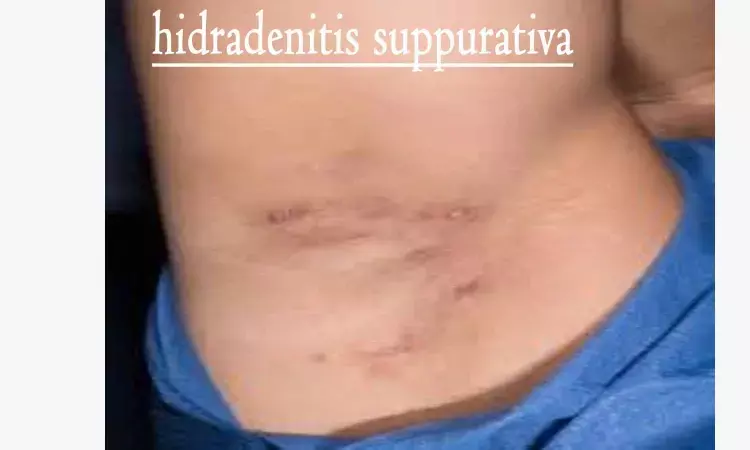- Home
- Medical news & Guidelines
- Anesthesiology
- Cardiology and CTVS
- Critical Care
- Dentistry
- Dermatology
- Diabetes and Endocrinology
- ENT
- Gastroenterology
- Medicine
- Nephrology
- Neurology
- Obstretics-Gynaecology
- Oncology
- Ophthalmology
- Orthopaedics
- Pediatrics-Neonatology
- Psychiatry
- Pulmonology
- Radiology
- Surgery
- Urology
- Laboratory Medicine
- Diet
- Nursing
- Paramedical
- Physiotherapy
- Health news
- Fact Check
- Bone Health Fact Check
- Brain Health Fact Check
- Cancer Related Fact Check
- Child Care Fact Check
- Dental and oral health fact check
- Diabetes and metabolic health fact check
- Diet and Nutrition Fact Check
- Eye and ENT Care Fact Check
- Fitness fact check
- Gut health fact check
- Heart health fact check
- Kidney health fact check
- Medical education fact check
- Men's health fact check
- Respiratory fact check
- Skin and hair care fact check
- Vaccine and Immunization fact check
- Women's health fact check
- AYUSH
- State News
- Andaman and Nicobar Islands
- Andhra Pradesh
- Arunachal Pradesh
- Assam
- Bihar
- Chandigarh
- Chattisgarh
- Dadra and Nagar Haveli
- Daman and Diu
- Delhi
- Goa
- Gujarat
- Haryana
- Himachal Pradesh
- Jammu & Kashmir
- Jharkhand
- Karnataka
- Kerala
- Ladakh
- Lakshadweep
- Madhya Pradesh
- Maharashtra
- Manipur
- Meghalaya
- Mizoram
- Nagaland
- Odisha
- Puducherry
- Punjab
- Rajasthan
- Sikkim
- Tamil Nadu
- Telangana
- Tripura
- Uttar Pradesh
- Uttrakhand
- West Bengal
- Medical Education
- Industry
Hidradenitis suppurativa adversely affects pregnancy and maternal outcomes: Study

New York: A recent study in the Journal of the American Academy of Dermatology stated that hidradenitis suppurativa (HS) may be an independent risk factor for adverse pregnancy and maternal outcomes. The risk may be affected by comorbidities that could be modified by early identification and management.
Women of childbearing age are said to be disproportionately affected by hidradenitis suppurativa. However, there is no information on pregnancy and maternal outcomes for women with HS. Amit Garg, Department of Dermatology, Donald & Barbara Zucker School of Medicine at Hofstra Northwell, Hempstead, New York, and colleagues aimed to compare the risk of adverse pregnancy and maternal outcomes among women with and without HS and to evaluate the influence of comorbid conditions.
For this purpose, the researchers conducted a retrospective cohort analysis between January 1, 2011, and September 30, 2015.
Based on the study, the researchers found the following:
· Compared to control pregnancies (n = 64,218), HS pregnancies (n = 1862) had a higher risk of spontaneous abortion (15.5% vs 11.3%), preterm birth (9.1% vs 6.7%), gestational diabetes mellitus (11.6% vs 8.4%), gestational hypertension (6.1% vs 4.4%), preeclampsia (6.6% vs 3.8%), and cesarean section (32.4% vs 27.1%).
· Relative risk of some pregnancy and maternal outcomes were attenuated after comorbidity adjustment.
· In the fully adjusted model, HS pregnancies were independently associated with spontaneous abortion (odds ratio, 1.20), gestational diabetes mellitus (odds ratio, 1.26), and cesarean section (odds ratio, 1.09).
"HS appears to be an independent risk factor for adverse pregnancy and maternal outcomes," the authors wrote. "This risk is influenced by comorbidities that may be modifiable with early identification and management."
However, potential influences of disease duration, activity, or severity, and newborn outcomes could not be evaluated.
Reference:
The study titled, "Adverse pregnancy and maternal outcomes in women with hidradenitis suppurativa," was published in the Journal of the American Academy of Dermatology.
Dr Kamal Kant Kohli-MBBS, DTCD- a chest specialist with more than 30 years of practice and a flair for writing clinical articles, Dr Kamal Kant Kohli joined Medical Dialogues as a Chief Editor of Medical News. Besides writing articles, as an editor, he proofreads and verifies all the medical content published on Medical Dialogues including those coming from journals, studies,medical conferences,guidelines etc. Email: drkohli@medicaldialogues.in. Contact no. 011-43720751


